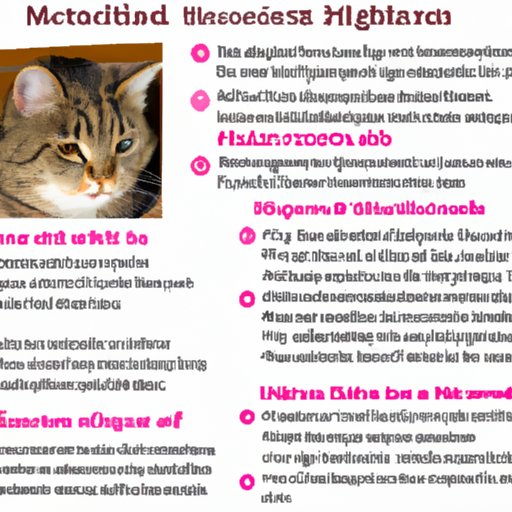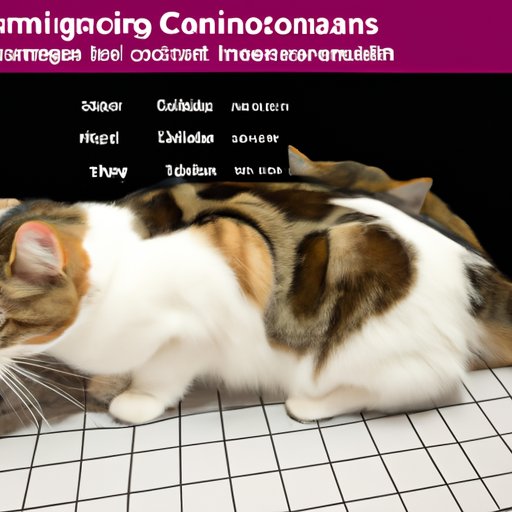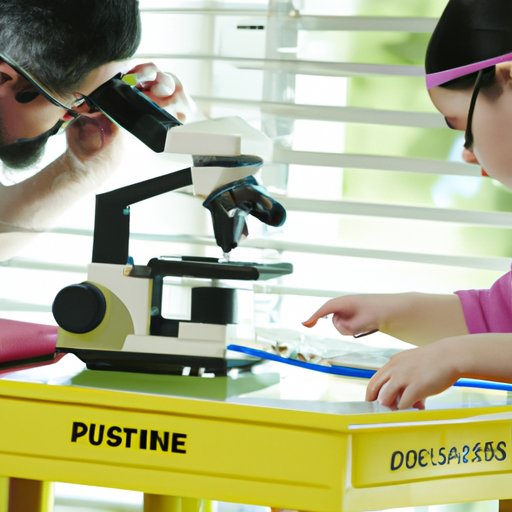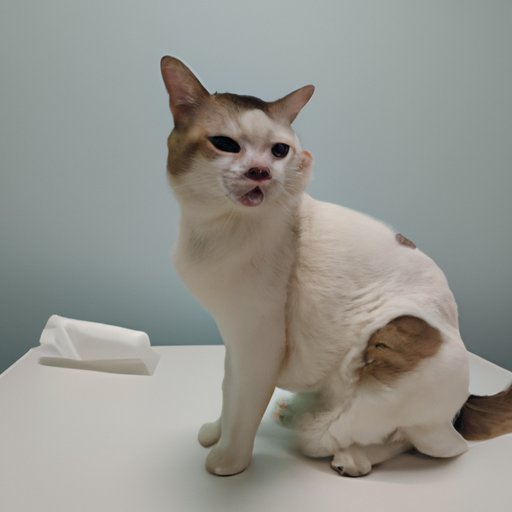Introduction
Munchkin cats are an increasingly popular breed of feline. With their short legs and adorable stature, it’s no surprise that this breed has become a favorite amongst cat lovers. But with any new breed comes questions about the potential health risks associated with them. In this article, we will explore the possible health concerns related to Munchkin cats and discuss possible solutions for mitigating these risks.
What is a Munchkin Cat?
Munchkin cats are a relatively new breed of cat, first developed in the 1980s. The breed is characterized by its short legs, which have been caused by a genetic mutation known as achondroplasia. This mutation affects the development of bones, leading to shorter legs. Despite their short stature, Munchkin cats are just as healthy and active as any other breed of cat. They are also incredibly social, making them great companions for families or people living alone.

Overview of Common Health Issues in Munchkin Cats
The most common health issues seen in Munchkin cats are orthopedic issues due to the short legs. These can include difficulty walking and joint pain. Other common issues include respiratory problems, eye problems, and cardiovascular issues. While these are all potential risks, they are not exclusive to Munchkin cats and can occur in any breed.
Comparison of Munchkin Health Issues to Other Cat Breeds
It is important to note that many of the health issues seen in Munchkin cats are similar to those seen in other breeds. For example, arthritis and hip dysplasia can occur in both short-legged and long-legged cats. Additionally, respiratory issues, eye problems, and heart disease are all common in cats of any breed. Thus, it is important to consider the other factors that may contribute to these health issues when evaluating Munchkin cats.

Examining the Genetics of Munchkin Cats
The genetics of Munchkin cats are complex and still being studied. The mutation responsible for the short legs, known as achondroplasia, is a dominant gene, meaning that it is passed on from one generation to the next. As such, it is important to understand the potential risks associated with this mutation and how it may affect the health of Munchkin cats.
Exploring Possible Causes for Munchkin Health Issues
In addition to the genetic mutation that causes the short legs, there are a variety of other factors that can contribute to the health issues seen in Munchkin cats. These include poor nutrition, lack of exercise, and inbreeding. All of these can lead to a weakened immune system and other health issues, so it is important to be aware of these potential causes.
Examining Common Health Concerns for Munchkin Cats
One of the most common health concerns for Munchkin cats is orthopedic issues. Due to the short legs, Munchkin cats may have difficulty walking or experience joint pain. It is important to keep an eye out for signs of limping or stiffness, as these can indicate a need for medical attention. Additionally, Munchkin cats may be more prone to respiratory issues, cardiovascular problems, and eye problems. Regular veterinary checkups can help identify any potential issues early on.

Exploring the Genetics Behind Munchkin Health Problems
As mentioned previously, the mutation responsible for the short legs in Munchkin cats is a dominant gene. This means that it is passed down from one generation to the next. It is important to understand the potential risks associated with this gene and how it may affect the health of Munchkin cats. Additionally, it is important to be aware of the potential for inbreeding, which may increase the chances of certain genetic disorders.

Investigating Possible Solutions for Munchkin Health Issues
There are a variety of solutions available for Munchkin cats who may be experiencing health issues. A balanced diet and regular exercise can help strengthen the immune system and reduce the risk of certain health problems. Additionally, regular veterinary checkups can help identify any potential issues early on. Finally, careful consideration should be given to breeding practices, as this can help reduce the risk of certain genetic disorders.
Debunking Myths About Munchkin Cat Health Risks
Despite the potential risks associated with Munchkin cats, there are some myths that need to be debunked. Firstly, it is important to note that inbreeding is not necessarily dangerous, as long as it is done responsibly. Additionally, Munchkin cats are not necessarily more prone to illness than other breeds of cats. With proper care and attention, Munchkin cats can live long and healthy lives.
Conclusion
Munchkin cats are an increasingly popular breed of cat, but with any new breed comes questions about the potential health risks associated with them. This article has explored the possible health issues that may affect Munchkin cats and discussed possible solutions for mitigating these risks. With a balanced diet and regular exercise, Munchkin cats can enjoy a long and healthy life. Additionally, it is important to be aware of the potential risks associated with the genetic mutation that causes the short legs and to practice responsible breeding practices. Ultimately, Munchkin cats can make wonderful companions, and with the right care and attention, they can live happy and healthy lives.
(Note: Is this article not meeting your expectations? Do you have knowledge or insights to share? Unlock new opportunities and expand your reach by joining our authors team. Click Registration to join us and share your expertise with our readers.)
